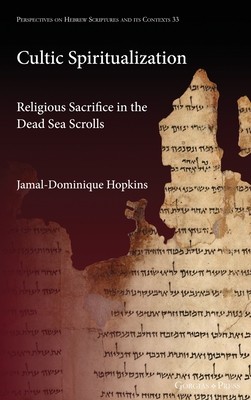
- We will send in 10–14 business days.
- Author: Jamal-Dominique Hopkins
- Publisher: Gorgias Press
- ISBN-10: 1463242417
- ISBN-13: 9781463242411
- Format: 15.2 x 22.9 x 2.2 cm, hardcover
- Language: English
- SAVE -10% with code: EXTRA
Reviews
Description
Since the discovery of the Dead Sea Scrolls beginning in 1947, its material witness and evocative content have captured the religious imagination of scholars and the general public alike. Hailed as one of the greatest archaeological discoveries of the 20th century, the excavated material content has illuminated and revitalized the vast fields of biblical-related scholarship. To date, investigation of the material discoveries related to religious sacrifice has received limited attention. In this study, Jamal-Dominique Hopkins examines the traces of the life and archaeology of Qumran, and the cherished views of sacrifice in the non-biblical sectarian Dead Sea Scrolls. Hopkins explores the historical and ideological development of the Jewish priestly movement related to the scrolls, focusing predominantly on the vantage point of the movement's later offshoot group known as the Qumran community. This panoramic examination of sacrifice in the Dead Sea Scrolls offers a historical reconstruction of this principal community and its gripping story. Hopkins reveals the development of a community, from its pre-Qumranic to Qumranic settlement stages, which chose to spiritualize the Jerusalem temple and sacrificial practices. As a consequence of being driven into the Qumran desert, in the absence of the physical temple in Jerusalem, this nomadic priestly community viewed itself as "temple." In exchange for actual animal sacrifice, through the acts of prayer and praise, the community offered the fruit of their lips as an alternative modality of sacrifice. In leaving the larger community, this Qumran community thus became an eschatological community engaging in the practice of cultic spiritualization.
EXTRA 10 % discount with code: EXTRA
The promotion ends in 19d.08:22:24
The discount code is valid when purchasing from 10 €. Discounts do not stack.
- Author: Jamal-Dominique Hopkins
- Publisher: Gorgias Press
- ISBN-10: 1463242417
- ISBN-13: 9781463242411
- Format: 15.2 x 22.9 x 2.2 cm, hardcover
- Language: English English
Since the discovery of the Dead Sea Scrolls beginning in 1947, its material witness and evocative content have captured the religious imagination of scholars and the general public alike. Hailed as one of the greatest archaeological discoveries of the 20th century, the excavated material content has illuminated and revitalized the vast fields of biblical-related scholarship. To date, investigation of the material discoveries related to religious sacrifice has received limited attention. In this study, Jamal-Dominique Hopkins examines the traces of the life and archaeology of Qumran, and the cherished views of sacrifice in the non-biblical sectarian Dead Sea Scrolls. Hopkins explores the historical and ideological development of the Jewish priestly movement related to the scrolls, focusing predominantly on the vantage point of the movement's later offshoot group known as the Qumran community. This panoramic examination of sacrifice in the Dead Sea Scrolls offers a historical reconstruction of this principal community and its gripping story. Hopkins reveals the development of a community, from its pre-Qumranic to Qumranic settlement stages, which chose to spiritualize the Jerusalem temple and sacrificial practices. As a consequence of being driven into the Qumran desert, in the absence of the physical temple in Jerusalem, this nomadic priestly community viewed itself as "temple." In exchange for actual animal sacrifice, through the acts of prayer and praise, the community offered the fruit of their lips as an alternative modality of sacrifice. In leaving the larger community, this Qumran community thus became an eschatological community engaging in the practice of cultic spiritualization.


Reviews